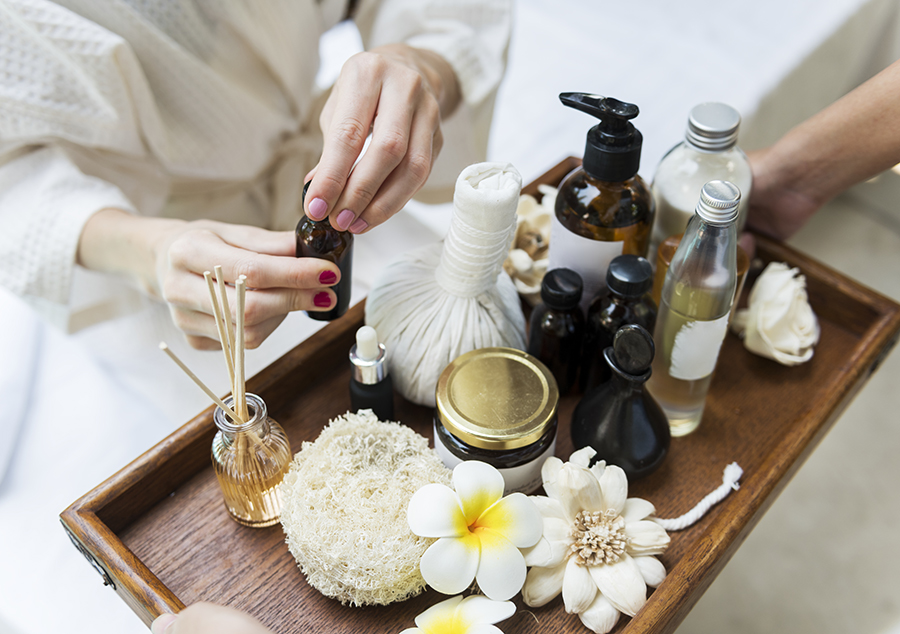The use of essential oils in aromatherapy and complimentary medicine has gained plenty of traction in recent years and with good reason.
Essential oils are made from plants via extraction or distillation (there are other ways, too but these are the modern means). With distillation, plants are put into a still and steam is applied to release the oils as vapor, which then condenses into liquid form and is captured and bottled.
On the other hand, extraction (cold press) is often used for citrus fruit oils (lemon, orange, bergamot, etc.). The rind of the fruit is pressed to release its oil, which is siphoned and bottled. (1)
Essential oils can be used topically, inhaled, and in some cases, ingested. One of the most powerful oils out there is frankincense essential oil.
Inhaling Essential Oils
Essential oils contain many phytochemicals that not only produce a particular scent but are packed with antioxidants and other beneficial compounds.
When you breathe in plant oil through your nose, it bypasses the blood-brain barrier, sending signals directly into your brain via the olfactory bulb and stimulating various reactions in your hippocampus and limbic system (2). Hormones are then released throughout the body, depending on the neural messages delivered by the aroma. This whole process is much faster that topical application because the oil doesn’t have to go through the skin and circulatory system before reaching the brain.
The hippocampus is responsible for the storage of long-term memory, which includes all past knowledge and experiences (3). These memories are heavily associated with scent because of the proximity of the olfactory bulb and hippocampus. This is why essential oils have such a profound impact on emotional health. The limbic system, which includes the hippocampus, is responsible for involuntary activities like regulating blood pressure, hormones, stress levels, breathing, and heart rate.
Oliver Wendell Holmes said, “Memories, imagination, old sentiments, and associations are more readily reached through the sense of smell than any other channel.” (4)
This story originally appeared at Daily Health Post.

Zenfull Living is a portal of life-friendly information moving us into an alternative reality of all things natural and life-sustaining.

